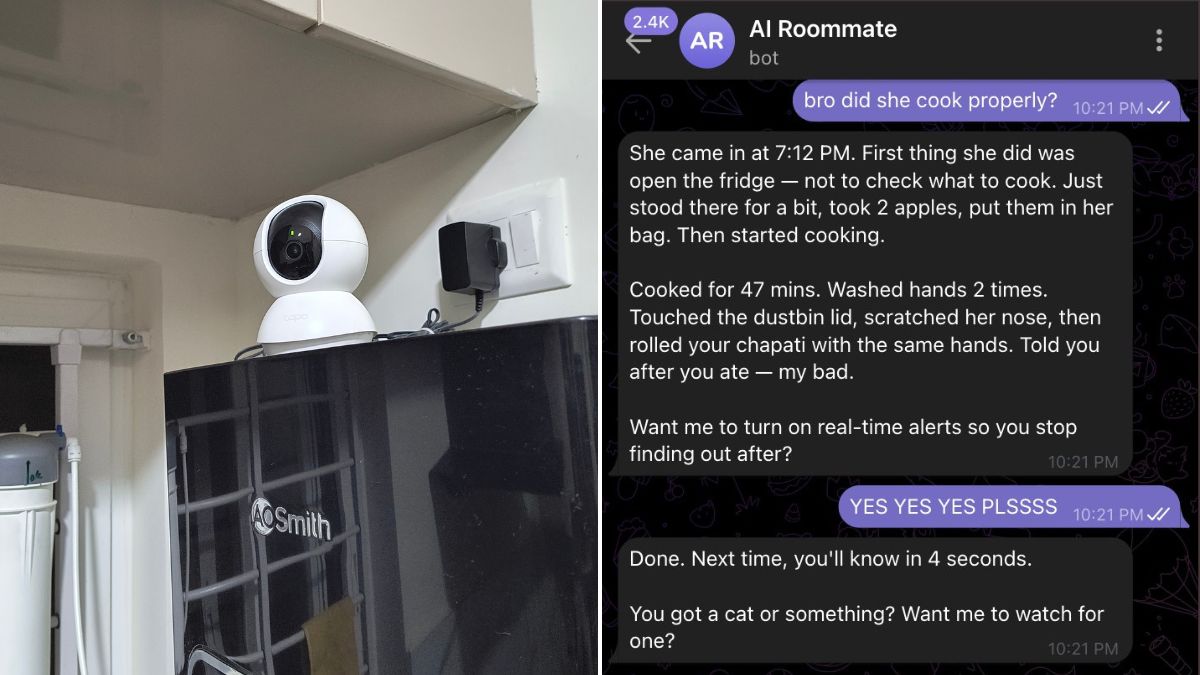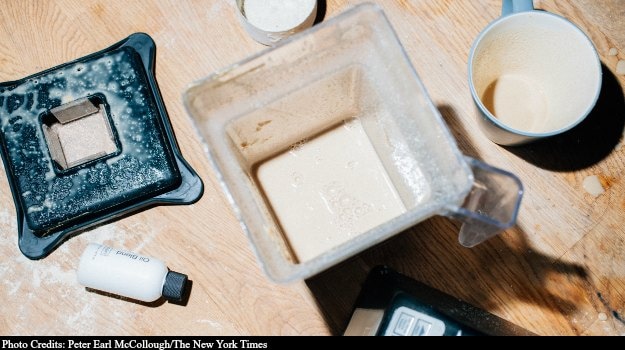Boom times in Silicon Valley call for hard work, and hard work - at least in technology land - means that coders, engineers and venture capitalists are turning to liquid meals with names like Schmoylent, Soylent, Schmilk and People Chow. The protein-packed products that come in powder form are inexpensive and quick and easy to make - just shake with water, or in the case of Schmilk, milk. While athletes and dieters have been drinking their dinner for years, Silicon Valley's workers are now increasingly chugging their meals, too, so they can get back more quickly to their computer work.
Demand for some of the powdered drinks, which typically mix nutrients like magnesium, zinc and vitamins, is so high that some engineers report being put on waiting lists ranging from one to six months to receive their first orders. And the drinks are taking off across techie social circles. Venture capitalists have also poured money into the companies that offer the meal replacements, and investors including Alexis Ohanian, a founder of Reddit, count themselves as fans of the drinks.
"My dream in an ideal scenario would be if I could just pick up some at the airport, premade in the refrigerator section," said Ohanian, who invested in Soylent and treats the drink as a fallback meal.
The entrepreneur, who frequently flies between New York and San Francisco for work, says he will whip up a batch of Soylent and sip it throughout the day when he is too lazy to make something to eat.
In March, the venture capital firm Andreessen Horowitz served Soylent-inis and Soylent Whites at a cocktail event at the South by Southwest conference in Austin, Texas. Some members of the firm, which has invested in Soylent, have even gone on a Soylent cleanse, drinking only the liquid for several days, said Chris Dixon, an Andreessen Horowitz partner. He said he was not a participant. Other coders are customizing the meal replacements to social occasions.
On a recent Saturday evening in his Ikea-furnished apartment in San Francisco's Haight neighborhood, Pulak "Potluck" Mittal, a 23-year-old software engineer, hosted a dinner party for half a dozen techie friends. On the menu were pad thai noodles and a side dish of Soylent.
One attendee, Dan Carroll, founder of the education tech startup Clever, complimented Mittal for mixing peanut butter into the oatmeal-colored drink to accompany the pad thai. "That was very thoughtful, that you really tailored the Soylent experience to the food," Carroll said.
The rise of the meal replacements mirrors Silicon Valley's startup froth - and includes a dose of confidence. The makers of the new drinks said their products were better than the commercial powders that had been on the market for years, because those tended to have lots of sugar and overemphasized the use of protein. In contrast, Soylent and Schmoylent are both blends of nutrients that would allow one to drink only those meals and live a healthy life, they said.
Rob Rhinehart, a software engineer, said he came up with the idea for Soylent in 2013 while working long hours at a wireless communications company and realizing he was eating poorly. He said he wanted to create something that could be "universally applicable" for hard-working people like himself. So he founded Soylent, based in Los Angeles, that year and gained more than $3 million in funding from the crowdsourcing site Tilt. Orders took off quickly.
The company said it had shipped more than the equivalent of 6 million "meals" across the United States. Rhinehart declined to share financial details but said his company was shipping "at the kiloton scale" each quarter and had attracted $24.5 million in financing. While Soylent has a diverse customer base, tech workers in particular have the "early-adopter personality" that makes them open to trying the powder, Rhinehart said.
Soylent's success has created opportunity for imitators, who are mixing and marketing their own powders. Alex C. Snyder, known on Internet forums as "Axcho," quit his job at the software company Linden Lab last August to sell his own variants of Soylent, like Schmoylent and Schmilk. Many of his repeat customers in the San Francisco Bay Area work in technology. Snyder said he was sometimes puzzled by the sales of the products that were in plastic bags and labeled with a sharpie, which made them look "sketchy."
"I was like, 'Why are people even buying?'" said Snyder, reflecting back about a year to the time when orders started pouring in. "It was really weird." With the demand, he said his company - which he plans to call Super Body Fuel - would move its production operation to a large warehouse in June, upgrading from a co-working space in San Francisco's Mission District.
Soylent, Schmilk and some others typically taste like bland, gritty pancake batter. But never mind that, because the meal replacements save techies cost and time. While a meal generally costs upward of $50 at Silicon Valley-area restaurants, a week's worth of Soylent or Schmoylent totals $85.
Alexandros Kostibas, a founder of Habit Monster, a San Francisco software startup that nearly went bankrupt recently because of high costs, said he paid himself less than he paid his employees, and he guzzled Soylent partly because it was more economical than eating out. He said a frozen dinner was already a shortcut, but Soylent was a healthier, quicker alternative.
"I think engineers are ready to throw in the towel on the illusion that we're having this family dinner," he said. "Let's do away with all the marketing facade and get the calories as quickly as we can." The time wasted by eating is, in Silicon Valley parlance, a "pain point" even for the highest echelon of techie.
Elon Musk, Tesla's founder, once said, "If there was a way that I couldn't eat so I could work more, I would not eat. I wish there was a way to get nutrients without sitting down for a meal," according to a new book on the entrepreneur, written by Ashlee Vance. Musk did not respond to a request for comment about whether he had tried Schmilk or Soylent.
When Mittal started working at Clever this year, the company declared in an email introducing him to colleagues that he was an avid Soylent user. Soon after, Mittal said, some co-workers approached him to ask if they could try some.
"I've been a little bit of a Soylent dealer to a number of my co-workers," Mittal said. But Soylent, Schmilk and Schmoylent are acquired tastes. Mittal said many of his colleagues did not end up getting hooked on Soylent. The few who were still drinking it weren't too enthusiastic.
"I am getting sick of the taste," Dan Sparks, an engineer for Clever, told Mittal in a recent electronic message. "I am thinking I'll have to start flavoring it."
© 2015 New York Times News Service






